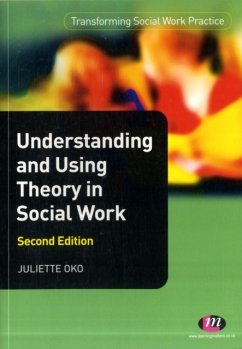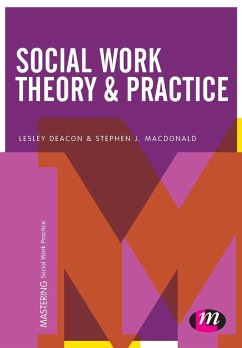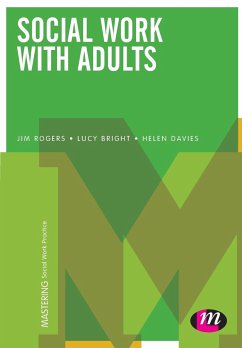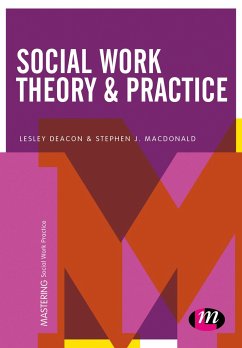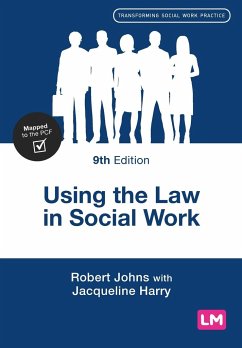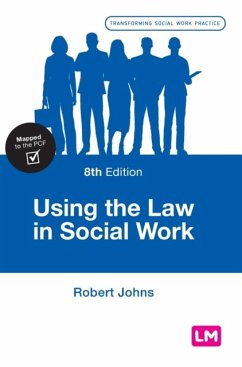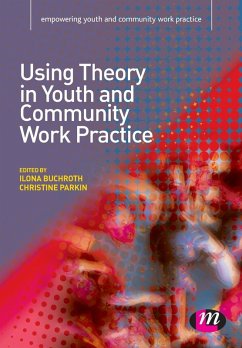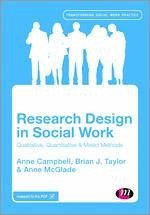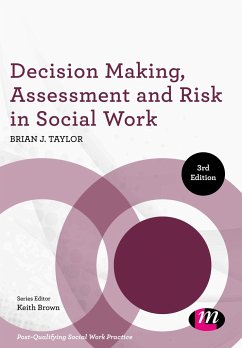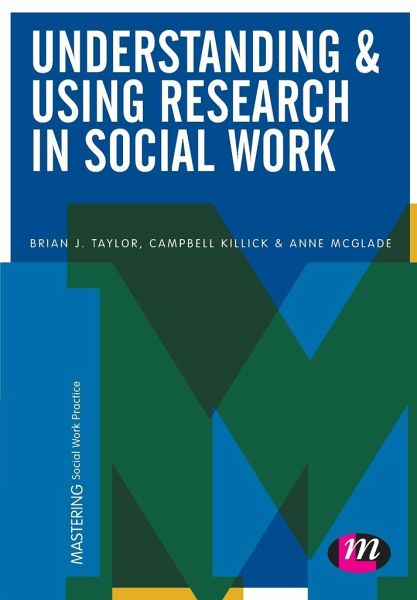
Understanding and Using Research in Social Work
Versandkostenfrei!
Versandfertig in 6-10 Tagen
26,99 €
inkl. MwSt.
Weitere Ausgaben:

PAYBACK Punkte
13 °P sammeln!
How do social work students learn to use research to underpin their practice decisions? How do they learn that research is not an activity unconnected to their professional role and responsibilities, but rather acts as a foundation for their knowledge?By using the examples drawn from evidence-based practice (e.g. what is known to work and what we know about social work processes), the authors deliver a text that will help support students to appraise and then integrate research into both their daily practice decisions and their assignments and assessments. It will do this by defining key conce...
How do social work students learn to use research to underpin their practice decisions? How do they learn that research is not an activity unconnected to their professional role and responsibilities, but rather acts as a foundation for their knowledge?
By using the examples drawn from evidence-based practice (e.g. what is known to work and what we know about social work processes), the authors deliver a text that will help support students to appraise and then integrate research into both their daily practice decisions and their assignments and assessments. It will do this by defining key concepts like 'knowledge' and 'evidence' and then look at how these concepts include component parts - from law and legislation to practice knowledge and reflective and critical practice. Case examples are used to illustrate how a clear understanding of these component parts can build to a substantial evidence base from which to draw upon. Identifying relevant research and appraising itsquality are core aspects of the book. Later chapters show students how robust knowledge of evidence-based practice can develop into a clear and confident approach to their workloads and their daily practice dilemmas.
By using the examples drawn from evidence-based practice (e.g. what is known to work and what we know about social work processes), the authors deliver a text that will help support students to appraise and then integrate research into both their daily practice decisions and their assignments and assessments. It will do this by defining key concepts like 'knowledge' and 'evidence' and then look at how these concepts include component parts - from law and legislation to practice knowledge and reflective and critical practice. Case examples are used to illustrate how a clear understanding of these component parts can build to a substantial evidence base from which to draw upon. Identifying relevant research and appraising itsquality are core aspects of the book. Later chapters show students how robust knowledge of evidence-based practice can develop into a clear and confident approach to their workloads and their daily practice dilemmas.





